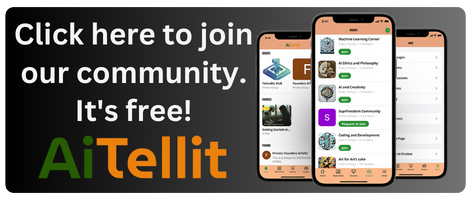Building a Career in AI: Skills, Opportunities, and Challenges

Building a career in artificial intelligence requires a strategic blend of technical skills, industry awareness, and ethical insight. Mastery of programming languages, statistical analysis, and critical thinking forms the bedrock of an AI professional’s expertise. The field offers diverse opportunities across sectors such as healthcare, finance, and transportation, with roles like Data Scientist, Research Scientist, and AI Product Manager leading the charge. However, with rapid advancements and evolving ethical considerations, staying updated on trends and gaining practical experience becomes imperative. How does one navigate this complex yet rewarding journey? Let’s explore further.
Building a Career in AI: Skills, Opportunities, and Challenges audio file

Understanding AI Careers
Understanding AI careers necessitates a comprehensive examination of the diverse opportunities available across various sectors, including healthcare, finance, and technology. Within these sectors, prominent roles such as Data Scientist and AI Software Developer are central to driving innovation and efficiency.
The educational pathways for these AI careers often begin with a bachelor’s degree in computer science or data science. Advanced degrees, such as a master’s or PhD in AI-specific fields, further deepen expertise and enhance career prospects. Complementing formal education, certifications in AI, machine learning, and data science provide targeted knowledge and are highly regarded by employers.
Online courses also serve as a flexible means for continuous skill development and career advancement, enabling professionals to stay current with rapidly evolving technologies.
Proficiency in programming languages like Python, R, and Java is fundamental for these roles. Additionally, practical experience gained through internships and personal projects is invaluable. Networking within the industry and engaging in continuous learning are crucial for staying competitive in the dynamic field of AI.
These pathways and resources collectively shape the foundation for a successful career in AI, enabling professionals to contribute effectively to their respective sectors.
Essential AI Skills

To excel in AI careers, professionals must possess a robust set of technical and analytical skills. Mastery of various programming languages such as Python, R, Java, and C++ is fundamental for developing and implementing AI algorithms. These languages enable the creation of efficient, scalable solutions essential for AI applications.
Equally important are strong statistical analysis and mathematical skills, which underpin the development of sophisticated AI models. Proficiency in these areas allows professionals to design algorithms that can process and interpret complex datasets effectively.
Critical thinking and problem-solving skills are indispensable for navigating the multifaceted challenges inherent in AI projects. These competencies enable professionals to devise innovative solutions and troubleshoot issues that arise during development.
Effective communication skills are crucial for articulating complex AI concepts to non-experts, facilitating better collaboration among interdisciplinary teams. This ensures that AI initiatives are well understood and supported across organizational levels.
Soft skills such as creativity and collaboration are also significant, as they foster an environment where innovative ideas can thrive and interdisciplinary efforts can succeed.
Proficiency in programming languages (Python, R, Java, C++)
Strong statistical analysis and mathematical skills
Critical thinking and problem-solving abilities
Effective communication skills
Creativity and collaboration
Industry Opportunities
The AI industry presents an array of opportunities across various sectors, including healthcare, finance, transportation, and retail, driven by the need for innovation and efficiency. The demand for AI has surged due to its ability to streamline operations and provide a competitive edge, leading to a substantial increase in job prospects and career growth for skilled professionals.
In healthcare, AI applications range from diagnostic tools to personalized treatment plans, creating numerous job roles for data scientists, machine learning engineers, and AI researchers.
The finance sector leverages AI for fraud detection, algorithmic trading, and risk management, offering promising advancement opportunities for AI specialists.
The transportation industry utilizes AI in autonomous vehicles and logistics optimization, further expanding employment prospects.
Retail businesses employ AI for customer behavior analysis, inventory management, and personalized marketing strategies, necessitating a wide range of expertise in AI-driven solutions.
The high demand for AI professionals across these diverse sectors underscores the necessity for individuals with advanced technical skills and innovative thinking.

Educational Pathways
Given the expansive opportunities in the AI industry, pursuing the right educational pathways becomes paramount for those aiming to excel in this dynamic field. AI professionals often begin their journey with a bachelor’s degree in computer science or data science, which provides foundational knowledge in essential areas such as algorithms, data structures, and programming languages.
For those seeking specialized AI career paths, advanced degrees in AI and related fields, such as a master’s or PhD, are increasingly preferred. These advanced degrees offer in-depth training in AI technologies and research methodologies, crucial for high-level positions in AI development and innovation.
To further enhance their expertise, aspiring AI professionals can pursue additional educational opportunities, such as:
- Certifications in AI: Recognized credentials that validate specialized skills in machine learning, neural networks, and other AI technologies.
- Online AI courses: Flexible and accessible learning options that cover various AI topics, from beginner to advanced levels.
- Specialized courses in AI: Targeted programs focusing on niche areas within AI, such as natural language processing or computer vision.
- Workshops and seminars: Short-term educational events that provide hands-on experience and networking opportunities.
- Research internships: Practical experiences that allow students to apply theoretical knowledge to real-world AI projects.
These educational pathways collectively equip individuals with the skills necessary to secure and succeed in an AI job.
Certification Programs

Certification programs in AI serve as a pivotal resource for acquiring specialized knowledge and demonstrating proficiency in areas such as machine learning, data science, and AI ethics. These programs provide targeted, structured training, equipping professionals with the technical skills required to excel in the AI field.
Industry-recognized certifications from leading tech giants like Google, Microsoft, and NVIDIA significantly bolster career prospects by validating expertise in specific AI domains. For instance, Google’s Professional Machine Learning Engineer certification focuses on machine learning, emphasizing design, implementation, and maintenance of ML models. Similarly, Microsoft’s Azure AI Engineer certification covers various aspects of AI, including natural language processing (NLP), computer vision, and AI solutions deployment on Microsoft Azure. NVIDIA’s certifications, primarily centered on GPU-accelerated computing, offer specialized training for high-performance AI applications.
These certification programs not only enhance technical acumen but also underscore a commitment to adhering to AI ethics, an increasingly crucial aspect of responsible AI development. By completing such certifications, professionals position themselves for higher-paying opportunities, reflecting the growing demand for verified AI expertise.
Job Search Strategies
To capitalize on the specialized knowledge gained from certification programs, implementing strategic job search methods becomes imperative for securing roles in the competitive AI industry. Effective job search strategies involve a multi-faceted approach, combining networking, leveraging referrals, and attending industry events to maximize exposure to potential opportunities.
Platforms like LinkedIn and specialized job boards are essential tools for AI career advancement, allowing candidates to connect with industry leaders and stay informed about the latest job openings. Additionally, seeking coaching and mentoring from experienced AI professionals can provide invaluable guidance, helping to navigate the job search process more effectively.
Staying updated with current AI job trends and requirements is crucial for tailoring your job search strategy to meet market demands. Utilizing resources like quexto.ai can further support and guide your AI job search journey.
- Networking: Engage with AI professionals and communities to expand your network.
- Referrals: Leverage connections for job referrals to increase your chances of landing a role.
- Industry Events: Attend conferences and seminars to stay abreast of industry developments and job openings.
- LinkedIn: Optimize your profile and actively participate in AI-related groups.
- Job Boards: Regularly check specialized job boards for AI-specific opportunities.
Popular AI Roles
The burgeoning field of artificial intelligence offers a variety of specialized roles, each requiring distinct skills and expertise to drive innovation and operational efficiency.
Among the prominent AI jobs, Machine Learning Engineers stand out for their critical role in developing AI models. They leverage advanced algorithms to create robust AI applications, with an average salary of $118,470. These professionals are instrumental in deploying AI technology across sectors.
Another key role in artificial intelligence careers is that of the Data Scientist. These AI experts analyze large datasets to extract valuable insights, earning a median salary of $108,020. Their work often intersects with AI models and applications, making them vital for data-driven decision-making.
Research Scientists focus on advancing AI technologies and applications. They explore cutting-edge areas like Natural Language Processing (NLP) and computer vision, pushing the boundaries of what AI can achieve. Their contributions are pivotal in keeping the AI field innovative and competitive.
AI Product Managers and AI Ethicists also play significant roles. While AI Product Managers oversee the development and implementation of AI products and services, ensuring they meet market needs, AI Ethicists are crucial in ensuring ethical AI development.
Collectively, these roles form the backbone of contemporary AI careers.
Ethical Considerations

Ethical considerations in AI development frequently revolve around critical issues such as privacy concerns, algorithmic bias, and the need for transparency. These components are paramount in ensuring that AI systems are designed and implemented responsibly. Navigating ethical dilemmas in AI necessitates a deep understanding of data privacy, algorithm transparency, and fairness.
Ensuring accountability in AI systems is crucial for building trust with users and stakeholders. Transparency in AI processes and decision-making is essential to uphold ethical standards in development. Ethical AI practices involve obtaining consent for data use, minimizing bias, and promoting fairness in algorithms.
Key ethical considerations include:
- Privacy Concerns: Safeguarding personal data to prevent misuse and breaches.
- Bias in Algorithms: Identifying and mitigating biases that can lead to unfair outcomes.
- Algorithm Transparency: Making AI decision-making processes understandable and accessible.
- Fairness in Algorithms: Ensuring equitable treatment of all users and stakeholders.
- Accountability in AI Systems: Establishing clear responsibility for AI actions and decisions.
Adhering to these ethical standards is vital for the long-term success and acceptance of AI technologies. By prioritizing data privacy, transparency in AI processes, and fairness, developers can mitigate ethical dilemmas and enhance the credibility of AI systems.
Hands-On Experience
Gaining hands-on experience in AI development is imperative for acquiring practical skills and deepening technical knowledge. Practical learning in AI can be significantly accelerated through personal AI projects, Kaggle competitions, and internships. Engaging in personal AI projects allows individuals to experiment with different algorithms and datasets, fostering essential skill-building. Kaggle competitions, known for their challenging real-world problems, offer a platform to test one’s expertise and provide valuable feedback from the AI community.
Internships are another critical component, offering exposure to real-world projects and industry experience that classroom learning alone cannot provide. By working on these projects, individuals can develop a diverse portfolio that showcases their ability to handle various AI applications, demonstrating their passion and expertise in AI development. This portfolio becomes a testament to one’s practical learning and skill-building endeavors, making it easier to secure job opportunities.
Moreover, continuous learning is pivotal in the rapidly evolving AI landscape. Staying updated with the latest advancements ensures that one’s skills remain relevant and competitive. Here is a summary of key avenues for hands-on experience:
| Experience Type | Description | Benefits |
|---|---|---|
| Personal AI Projects | Independent experiments with AI algorithms | Enhances creativity, self-reliance |
| Kaggle Competitions | Platform for solving real-world problems | Community feedback, skill testing |
| Internships | Work on industry-specific AI projects | Industry experience, networking |
| Real-World Projects | Practical applications in professional settings | Direct applicability, knowledge |
| Diverse Portfolio | Collection of varied AI projects | Demonstrates expertise, passion |
These avenues collectively contribute to a robust foundation in AI development.
Future Trends in AI
As AI professionals continue to build hands-on experience, it is imperative to recognize the emerging trends that will shape the future landscape of artificial intelligence. The future of AI is poised for transformative growth, driven by advancements in technologies and methodologies.
The rising popularity of generative AI, projected to grow from $40 billion in 2022 to $1.3 trillion by 2032, underscores the significant impact these technologies will have on AI projects and the broader industry.
Key future trends include:
- Generative AI: With its market size expected to exponentially increase, generative AI will create numerous new job prospects and revolutionize content creation and automation.
- Exploding Data Volumes: The tripling of global data from 2020 to 2025 will necessitate skilled AI professionals to process, analyze, and derive actionable insights.
- Explainable AI: Enhancing trust and transparency in AI systems, Explainable AI will be crucial for regulatory compliance and ethical AI deployment.
- Quantum Machine Learning: This emerging field promises to solve complex problems faster than classical computers, opening new career opportunities and future job roles.
- AI Advancements Across Industries: From healthcare to finance, sector-specific AI advancements will drive innovation and create diverse career opportunities.
These trends highlight the dynamic nature of AI, emphasizing the need for continuous learning and adaptation to seize future career opportunities.

Conclusion
In summary, building a career in artificial intelligence necessitates mastering critical skills such as programming, statistical analysis, and critical thinking.
The field offers diverse opportunities across various industries, with roles like Data Scientist and AI Product Manager being prominent.
Navigating ethical issues, staying abreast of industry trends, and gaining practical experience through projects and internships are crucial for success.
Continuous learning and adaptability are essential to thrive in the rapidly evolving landscape of artificial intelligence.







Responses